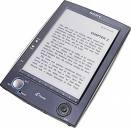Reading books. Really reading. Really.
OK readers, it’s time to look at yourself in the mirror and tell the truth.
How many print books did you read in the last week? In the last month? How about the last year? Are you reading more or less? Tell the truth. Write down your answers.
Here are mine:
Print books:
Last week: 2 books
Last month: 6 books
Last twelve months: 60 books
Ebooks:
Last week: 1 book
Last month: 2 books
Last twelve months: 8 books
My totals of books read are higher now than they have been in the past few years because I realized recently that I was reading fewer and fewer books; like so many people I meet, my work and much of my play seems to have migrated to the web. 
To help me read more and concentrate more on what I am reading, earlier this year I decided to start a website (www.writerscast.com) where I conduct long form interviews with writers. This has meant committing myself to reading books and thinking about them before talking to the authors. And that has certainly enabled me to read more books – I have thus rediscovered the joys of deep engagement that long form writing and committed reading enables.
This blog post is aimed at a higher than average book reading, book culture demographic. It’s a pretty safe guess that readers of Huffington Post read more in general and especially read more books than most Americans. It’s also a pretty safe guess that if you are being honest, the number of books you read today is much lower than it was five, ten, fifteen years ago whatever your background or book reading history.
In fact, you may have purchased just as many books as you did in the past, maybe more. You have more money than in your youth, and books are still relatively inexpensive cultural investments. If you’re like most heavy readers, you buy books based on the notion that you will read these books, or that you should read these books, a sort of self-imposed cultural belief system. Books are indicators of our intellectual life, after all. After all, having books in your house defines you as a certain kind of person.
But as long as we are being truthful, let’s admit that we have bought (and own) more books, by far, than we will ever read in our lifetimes. And we are likely reading fewer books than in the past.
Are we reading less? Probably not. In fact, the evidence is that we are reading more than ever.
Americans are consuming vast amounts of written information online. Actual reading is at very high levels. But if the most highly educated among us are reading fewer books, as they most assuredly are, what does that mean for the future of publishing and more importantly for the future of our culture?
That’s a loaded question of course – even how I phrased it implies that I believe it’s a bad thing that fewer books are being read. I don’t. In fact my interest in raising this question here is to celebrate change. Many of us who are in the book business got into it for the obvious reason that we loved books and writing. It’s obviously going to be difficult for a group of people who love books, hang out with other book lovers, and talk about books all the time to accept the notion that the definition of what a book is can and will change. But change is the defining characteristic of our time.
It’s not the book publishers but the behavior of readers that will define the future of reading and of culture. What will it look like? E-reading and new digital communication forms and formats will take over, and faster than anyone imagines. Books are artifacts of modern technology no more or less than digital creations. People adapt to new technologies in ways that suit their needs and interests, and equally new technologies are created around the perceived needs of people.
The electronic reading future is already our present.


